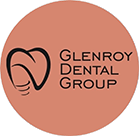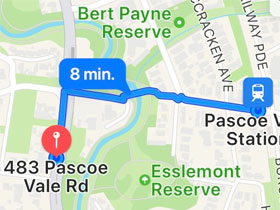Tooth decay and cavities are something you are most likely to experience at any age, given the dental care routine you follow and the lifestyle you lead. Even though kids are most vulnerable to it, adults should not ignore any signs of dental cavities. Cavities, if not treated on time, can result in major oral issues and complete tooth decay. It is important to address even minor oral caries before spreading and causing massive damage.
To save a damaged tooth in Glenroy, dentists recommend all adults go for a regular dental checkup to trace and treat any signs of dental activities or tooth decay. Early detection of a damaged sign can help the dentist treat the cavity and prevent total damage to the tooth before it goes to an extent where tooth extraction is the only option left.
What is tooth decay?
One of the most recognized causes of tooth decay is the diet you follow. While sugary drinks and foods are mostly held responsible for dental decay, some starchy foods like rice and potatoes are also partners in this crime. Bacteria thrive on these starches and sugars, followed by the production of acid, which has a hard reaction on your teeth, decaying and damaging them. The very first sign of tooth decay is a black or white spot visible on the tooth
Coming to your body’s natural defense against this decay, your saliva acts as a natural defense against any tooth decay right at its early stages. People producing less saliva are highly prone to tooth decay. And the best way to prevent tooth decay is to practice good oral habits alongside developing healthy drinking and eating habits. Brush your teeth twice a day with fluoride-enriched toothpaste, and drink fluoride-enriched water. Stay away from starchy and sugary drinks and food as much as possible. Also, never miss your regular dental visits to trace and treat the early signs of tooth decay. Right detection of signs of decay can keep you away from a filling or tooth extraction.
How to save a damaged tooth?
There are different types of treatments offered to save a damaged tooth in Glenroy. The treatment type and cost are based on the severity of the damage your tooth has experienced. Some of the most commonly used dental decay treatments offered by our dentists in The Glenroy Dental Group are:
Fillings
When the decay has reached a progressive stage that is beyond its inception stage, restorations or fillings are considered prominent treatment options. The materials that are used for filling are likely to vary, including the use of porcelain, composite resins in tooth colour, a mix of dental amalgam, and other materials.
Crowns
A dental crown refers to a customized fitting covering used to replace the natural crown. This treatment type becomes necessary when your tooth has encountered extensive damage and is weak. Our Glenroy dentist will need to drill away the decayed tissues along with a part of the tooth remaining to make sure that the crown fits well. This crown is made of high-strength porcelain, porcelain infused with metal, resin, or other materials as required.
Root Canal
A root canal becomes necessary in some cases where the decay has reached the inner material, i.e., the pulp of your tooth. The aim of root canal is to repair and save a badly infected or damaged tooth rather than extracting it. A hole is made within the tooth shell to remove the infected or damaged pulp. Medications are administered into the canal to get rid of the infection. This is followed by placing a filling to replace the tooth pulp.
Tooth extraction
This is one last thing that you will want to avoid- tooth extraction or removing the severely damaged tooth. When a tooth is in a condition beyond repair, your dentist takes this step. Since tooth extraction is likely to develop a gap between other teeth, a dental implant is recommended to replace the extracted tooth.
Fluoride treatments
Fluoride treatments are often helpful in reversing a tooth cavity in its early stage, i.e., the cavity has only started developing. While toothpaste, tap water, and mouthwashes with fluoride are suggested, opting for professional fluoridation is much more useful and effective since it contains more fluoride. A fluoride treatment involves the use of professionally graded fluoride-loaded gels or liquids or varnishes being applied to the tooth experiencing cavity by either brushing or placing in the mouth guards.
Selecting the best-damaged tooth treatment in Glenroy
When trying to save a damaged tooth in Glenroy, it is very important to opt for the best orthodontic clinic. To find out the best one in your vicinity, research and reading reviews and asking questions are very important. Make sure that you have considered all facts before finalizing your decision.
Get in touch with The Glenroy Dental Group for any questions you have in concerns or to seek a second opinion.
Book your dental appointment with us online or contact us at the details given below to get in touch.
The Glenroy Dental Group
Address: 483 Pascoe Vale Road Strathmore 3041
Phone Number: (03) 9306 6511







